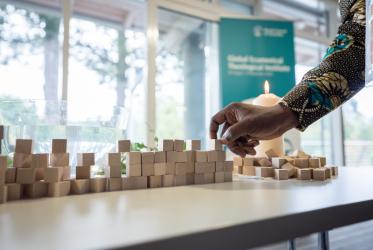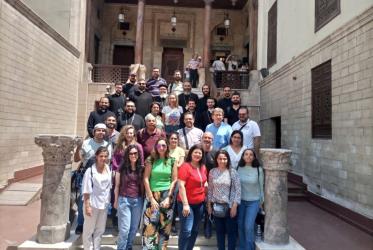A brief history of GETI
The Global Ecumenical Theological Institute (GETI) was first held at the WCC 10th Assembly in 2013 in Busan, South Korea and was initiated by the WCC-ETE programme. Another GETI followed in 2018, organised around the Conference for World Mission in Arusha, Tanzania.
Viewed retrospectively, GETI’s embryonic roots lie in the 2004 World Alliance of Reformed Churches (now WCRC) Assembly that was held in Accra, Ghana. The ripple from Accra carried through to the WCC’s 9th Assembly in 2006 in Porto Alegre, Brazil at which a gathering of young ecumenical theologians took place, though it was not termed GETI. Over the years Ecumenical Institutes became a feature in WCRC through its annual Global Theological Institute (GTI). Regional Ecumenical Organisations also commonly hold ecumenical institutes at their assemblies. It is in that spirit that in 2017, GETI’17 with a European focus was held in Germany.
GETI gathers young and emerging ecumenical theologians and educators from a broad spectrum of Christian traditions and all eight regions of the WCC to theologically engage with one another on critical theological themes of our time.
GETI aims to enable participants to:
- Strengthen knowledge of current local and global ecumenical themes
- Engage with past, present and future issues in ecumenical discourse
- Utilize interdisciplinary approaches for ecumenical studies
- Express a theologically informed and contextually grounded ecumenical theology
- Seek constructive solutions for challenges in changing religious and societal landscapes.
Click here to learn more about the Global Ecumenical Theological Institute 2018
Apply for Global Ecumenical Theological Institute 2022!




